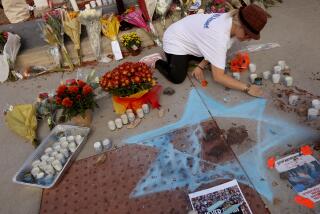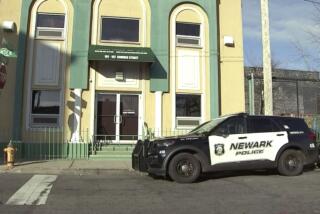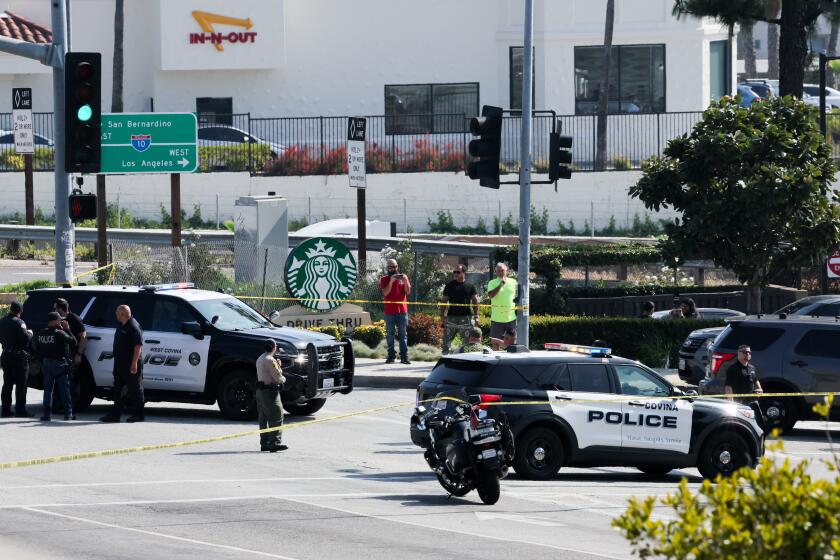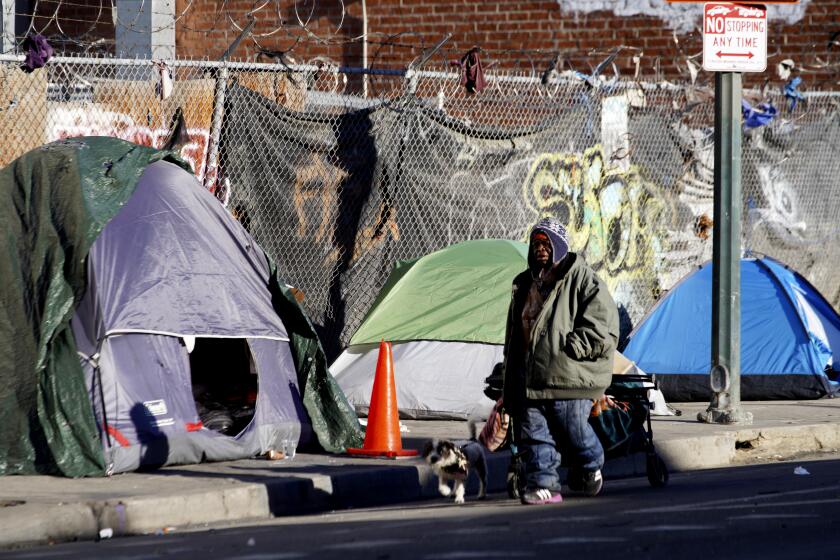Bin Laden’s death may ease anti-Muslim sentiment in U.S.
The reactions reflected unalloyed joy and deliverance: It was “double good news,” a “victorious day,” the dawn of “a new era.” These were the voices of Muslim American leaders and scholars, for whom the news of Osama bin Laden’s death came bundled with an extra ribbon of relief.
“American Muslims have kind of been in a kettle, a boiling kettle, and the fire has been this terrorism,” said Ihsan Bagby, an associate professor of Islamic Studies at the University of Kentucky. “Hopefully, the demise of Qaeda and this terrorist philosophy will put out the fire.”
For all that hope, there were those who said Monday that it was too early to tell whether Bin Laden’s assassination by U.S. forces would unshackle the American Muslim community from associations in the public mind with extremism.
“I think the potential lies in either this being a step forward or being a step back, and it all depends on how we decide to use the moment and reflect on it,” said Imam Khalid Latif, a chaplain with the New York Police Department and New York University. “We would need people to step up beyond press releases and statements, and really begin to do meaningful work that highlights to people how Islam and Muslims are able to bring benefit back to society.”
The attacks unleashed by Bin Laden on Sept. 11, 2001, were a disaster in many ways for American Muslims, who suddenly faced the sort of broad-based suspicion that fell on Japanese Americans during World War II and German Americans during World War I. It was compounded by what some critics viewed as hesitance by Muslim American leaders to adequately denounce terrorism — a charge that the leaders denied, but to little avail.
Complicating the situation was the fact that Muslim Americans, by and large, differed with broad swaths of the country on sensitive issues such as U.S. support for Israel and initial public support for the war in Iraq.
Bin Laden’s death may not immediately extinguish the flames of Islamic extremism internationally or anti-Muslim sentiment at home, but many Muslim Americans said they hoped it would be the beginning of the end.
“Bin Laden was symbolic,” said Salam Al-Marayati, president of the Los Angeles-based Muslim Public Affairs Council. “And the fact that he’s eliminated is a symbolic victory for all of us.”
Like many commentators, Al-Marayati said Bin Laden’s death must be viewed in conjunction with the “Arab Spring” uprisings in Egypt, Tunisia, Libya, Syria and elsewhere, demonstrating “that the days of terrorism and the use of political violence to achieve change and address grievances are waning.”
Al-Marayati spoke at a news conference in Los Angeles alongside political and law enforcement officials including City Council President Eric Garcetti and Los Angeles County Sheriff Lee Baca, as well as interfaith religious figures.
Also speaking was Dr. Maher Hathout, a retired cardiologist and longtime Muslim leader in Los Angeles who hailed the assassination of Bin Laden, saying that “our planet will be a better place” without him.
Some other Muslim American leaders expressed skepticism that Bin Laden’s death would change the way Muslim Americans are viewed by the wider culture.
“Realistically speaking, I don’t think we will be witnessing any real change in the anti-Muslim rhetoric in America,” said Hussam Ayloush, executive director of the L.A. branch of the Council on American-Islamic Relations, “because it is being pushed by those who use deliberate misinformation, and that is not going to disappear with the disappearance of Bin Laden.”
But he applauded Obama’s statement about the U.S. not being at war with Islam and called it a huge step in the right direction.
John Esposito, a leading scholar of Islam who directs the Prince Alwaleed bin Talal Center for Muslim-Christian Understanding at Georgetown University, said there is no simple answer to the question of how Bin Laden’s death will affect the American Muslim community.
“Obviously, Bin Laden has been an albatross around the neck of American Muslims” and his death will bring a sense of relief, he said. But Esposito noted that many Americans rejoiced at the death of Iran’s Ayatollah Khomeini by natural causes in 1989, as if his passing would end any Iranian threat to the United States.
“And of course, it didn’t happen,” he said. “I think intelligent Muslims will be aware that this is a turning point but only the beginning of a turning point.”
Several said they expected relatively few Muslims to view Bin Laden as a martyr. “We want people to understand that this was not an attack on Islam and that he was not a true Muslim, he was a terrorist,” said Harris Zafar, spokesman for the Ahmadiyya Muslim Community USA. “The Koran is clear, there’s no room for anarchy and chaos.”
mitchell.landsberg@latimes.com
More to Read
Start your day right
Sign up for Essential California for news, features and recommendations from the L.A. Times and beyond in your inbox six days a week.
You may occasionally receive promotional content from the Los Angeles Times.






